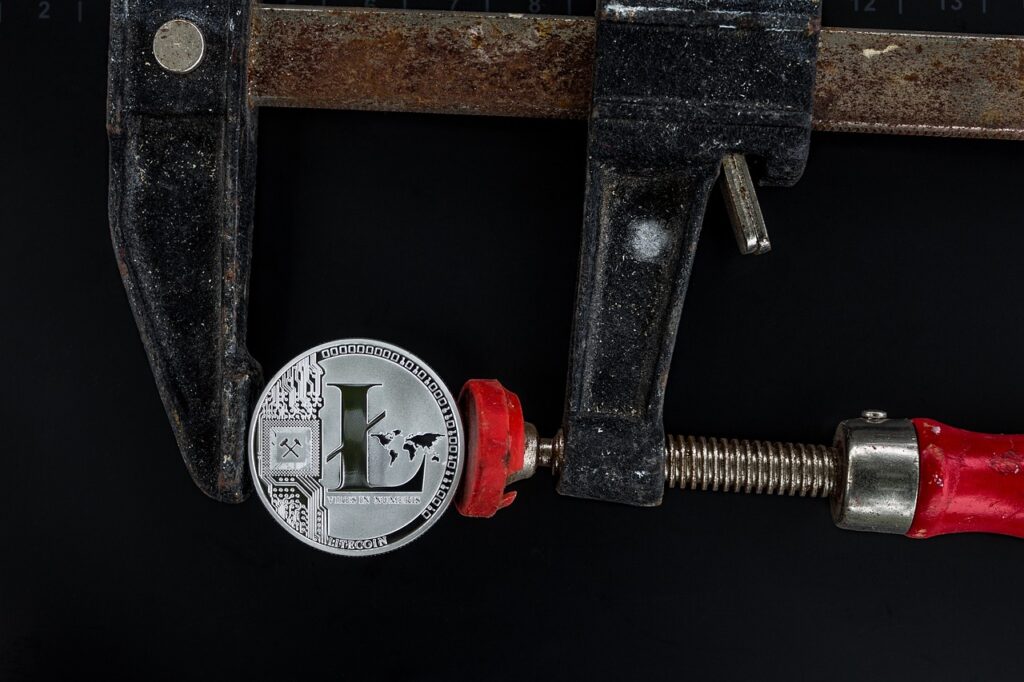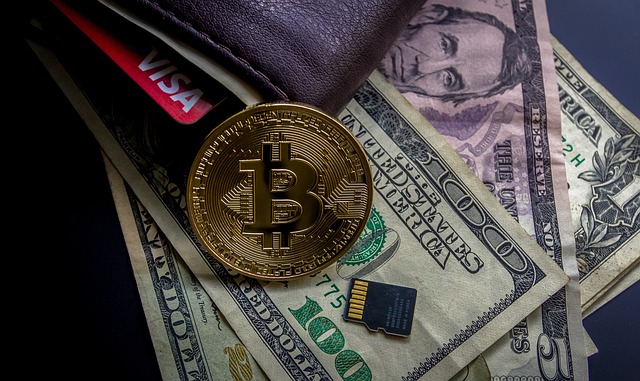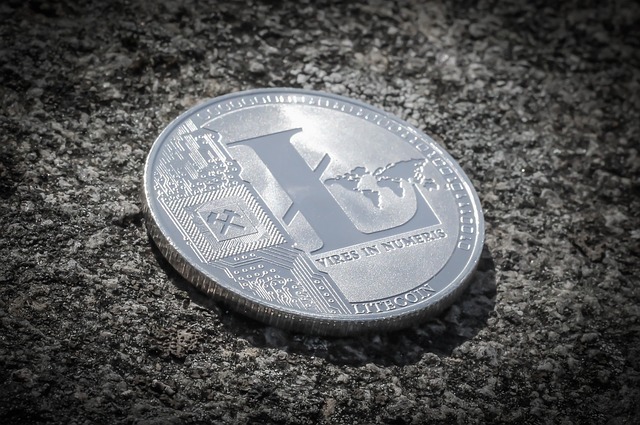Decentralized Finance Companies: Pioneers of Financial Transformation
Decentralized Finance Companies: Pioneers of Financial Transformation

The Emergence of a New Financial Landscape: Exploring the Rise of Decentralized Finance Companies
Decentralized Finance (DeFi) companies are transforming the financial landscape, ushering in a new era of innovation and opportunities. With the advent of blockchain technology, these companies leverage the power of distributed ledgers to provide financial services in a decentralized and trustless manner. Unlike traditional banking, which is centralized and often mired with intermediaries, DeFi companies enable peer-to-peer transactions and eliminate the need for middlemen. This not only reduces costs but also opens up avenues for individuals worldwide to access financial services that were previously unavailable to them.
The rise of DeFi companies has sparked a wave of excitement and curiosity among investors, developers, and financial enthusiasts. These companies offer a wide range of services, including lending, borrowing, decentralized exchanges, asset management, and more. The decentralized nature of these platforms ensures transparency, security, and autonomy for users, as transactions are executed through smart contracts, which are self-executing agreements written in code. By eliminating the need for intermediaries and replacing them with smart contracts, DeFi companies are revolutionizing the way we conduct financial transactions, enabling faster and more efficient processes.
Revolutionizing Traditional Banking: How Decentralized Finance Companies are Disrupting the Industry
Decentralized finance (DeFi) companies are shaking up the traditional banking industry and challenging the status quo. With the rise of blockchain technology, these companies are revolutionizing how financial transactions are conducted, removing the need for intermediaries and offering greater control and transparency to individuals.
One key way in which DeFi companies are disrupting the industry is through the concept of smart contracts. These programmable agreements enable trustless transactions, as all conditions are predefined and automatically executed when met. This eliminates the need for traditional intermediaries, such as banks or lawyers, to oversee and verify transactions. By utilizing smart contracts, DeFi companies are not only eliminating unnecessary costs but also providing a more efficient and secure way of conducting financial activities. Individuals can now transact directly with one another, bypassing the bureaucratic hurdles often associated with traditional banking systems.
In addition to enabling trustless transactions, decentralized finance is also expanding investment opportunities for individuals. Decentralized exchanges allow users to trade various digital assets without needing to rely on a centralized authority. This opens up a world of possibilities for investors by providing access to a wide range of assets, including cryptocurrencies, tokens, and other digital assets. With DeFi platforms, anyone can participate in the global market, promoting a more inclusive and democratized financial system.
As decentralized finance gains momentum, it is clear that traditional banking is being confronted with a new and disruptive force. However, it is important for individuals and institutions alike to be aware of the potential risks and challenges that come with embracing this emerging financial landscape. Security measures and regulatory frameworks must be implemented to protect users and ensure the stability of the industry.

Unlocking Financial Inclusion: The Role of Decentralized Finance in Providing Access to Underserved Communities
Decentralized finance (DeFi) has emerged as a powerful force in the financial landscape, offering a unique solution to one of the most pressing challenges: providing access to underserved communities. Traditionally, these communities have been excluded from mainstream banking systems due to various reasons, such as lack of documentation, inadequate credit scores, or remote geographical locations. However, with the advent of decentralized finance companies, financial inclusion is becoming a reality for these marginalized groups.
One of the key ways that decentralized finance is enabling access to underserved communities is through the use of blockchain technology. Blockchain eliminates the need for intermediaries, such as banks, by allowing individuals to directly transact with each other. This opens up a whole new world of opportunities for those who have been left out of traditional financial systems. Whether it’s accessing loans, sending and receiving money, or participating in investment opportunities, decentralized finance companies are revolutionizing the way people interact with money. By harnessing the power of technology, these companies are not only providing access, but also fostering a sense of empowerment and autonomy for underserved communities.
The Power of Smart Contracts: How Decentralized Finance Companies are Enabling Trustless Transactions
Smart contracts are changing the way financial transactions are conducted, thanks to the rise of decentralized finance (DeFi) companies. These contracts are self-executing and operate on a blockchain network, ensuring that transactions are carried out automatically and without the need for intermediaries. By eliminating the need for middlemen like banks or legal professionals, decentralized finance companies are enabling trustless transactions that are transparent, efficient, and secure.
One of the key advantages of smart contracts is that they operate based on predefined conditions, removing the need for human intervention and potential errors or biases. Once the conditions are met, the contract is automatically executed, ensuring that both parties receive what they are entitled to without any delay or dependency on third parties. This trustless nature of transactions is not only revolutionizing the financial industry but also has the potential to eliminate fraud and reduce costs associated with traditional finance systems. As decentralized finance companies continue to harness the power of smart contracts, we can expect to see even greater innovation and disruption in the world of finance.
Redefining Investment Opportunities: Exploring the World of Decentralized Finance and Decentralized Exchanges
Decentralized finance (DeFi) has emerged as a game-changer in the investment landscape, offering a plethora of new opportunities for individuals to explore. Unlike traditional finance, which is often centralized and governed by intermediaries, DeFi allows for direct peer-to-peer transactions without the need for middlemen. This has opened up a world of possibilities, enabling investors to access a wide range of financial instruments and participate in decentralized exchanges.
One of the key advantages of decentralized finance is the ability to invest in digital assets that were previously out of reach for many individuals. Traditional financial institutions often impose barriers to entry, making it difficult for average investors to diversify their portfolios.

Empowering Individuals: How Decentralized Finance Companies are Giving Financial Control Back to the People
Decentralized finance companies have emerged as a game-changer in the financial world, providing individuals with a level of control that was previously unthinkable. By leveraging blockchain technology, these companies are able to offer a range of financial services that empower individuals to take charge of their own money. From lending and borrowing to investing and saving, decentralized finance companies are putting the power back into the hands of the people.
One of the core principles of decentralized finance is the elimination of intermediaries. Traditionally, financial institutions have acted as middlemen, dictating the terms and conditions of transactions. However, with decentralized finance, individuals can engage in direct peer-to-peer transactions, cutting out the need for third-party interference. This not only reduces costs but also increases transparency and trust in financial transactions. Whether it’s accessing loans without going through a bank or investing in assets without the involvement of a broker, decentralized finance companies are revolutionizing the way individuals manage their finances.
• Decentralized finance companies leverage blockchain technology to offer financial services
• Individuals can take charge of their own money through decentralized finance
• Lending, borrowing, investing, and saving are some of the services offered by decentralized finance companies
• Intermediaries are eliminated in decentralized finance transactions
• Direct peer-to-peer transactions reduce costs and increase transparency and trust in financial transactions
• Accessing loans without a bank or investing without a broker is possible with decentralized finance
Navigating DeFi Risks: Understanding the Challenges and Security Measures in the World of Decentralized Finance
Decentralized Finance (DeFi) has undeniably opened up a world of possibilities for individuals to engage in financial activities without relying on traditional banking institutions. However, its nascent nature and digital infrastructure also come with inherent risks. Navigating DeFi risks requires a keen understanding of the challenges and the implementation of robust security measures.
One of the primary challenges in the world of DeFi is smart contract vulnerabilities. Smart contracts are self-executing agreements coded on the blockchain, facilitating various transactions. While they eliminate the need for intermediaries, they are not impervious to flaws. Bugs or vulnerabilities in smart contract code can lead to catastrophic consequences, such as funds being locked or stolen. To mitigate these risks, DeFi companies are diligently auditing and testing their smart contracts, sometimes even employing external auditors to ensure the code’s solidity. Additionally, the industry as a whole is investing in research and development to enhance security protocols and frameworks, reducing the surface area for potential exploits. Ongoing monitoring and timely updates are crucial to mitigating smart contract risks in the dynamic DeFi landscape.
Exploring the Potential of Stablecoins: How Decentralized Finance Companies are Revolutionizing the Concept of Digital Currencies
Stablecoins have emerged as a game-changer in the world of digital currencies, offering a solution to the volatility that has long plagued traditional cryptocurrencies like Bitcoin. These digital assets are designed to maintain a steady value by pegging their price to a stable underlying asset, such as a fiat currency or a commodity. This innovation opens up a whole new realm of possibilities for decentralized finance companies, as stablecoins provide a reliable and predictable medium of exchange within the digital economy.
One of the key advantages of stablecoins is their ability to bridge the gap between the traditional financial system and the world of decentralized finance. By offering a stable and trustworthy digital currency, decentralized finance companies can attract individuals and businesses who have been reluctant to fully embrace cryptocurrencies due to their price volatility. This increased acceptance and adoption of stablecoins can potentially revolutionize the way we conduct financial transactions, eliminating the need for intermediaries and reducing transaction costs. Moreover, stablecoins can unlock new opportunities for cross-border payments, as they enable fast and seamless transactions without the need for traditional banking systems. The potential impact of stablecoins in reshaping the concept of digital currencies is immense and is bound to create a more inclusive and accessible financial landscape for all.
Bridging Traditional Finance with DeFi: The Integration of Decentralized Finance Companies into Mainstream Institutions
The integration of decentralized finance companies into mainstream institutions marks a significant shift in the financial landscape. Traditional finance, with its centralized structures and intermediaries, has long been the norm. However, the rise of decentralized finance, or DeFi, brings a new wave of innovation and possibilities.
One of the key benefits of bridging traditional finance with DeFi is the potential for increased accessibility and financial inclusion. Traditional banking systems often exclude individuals from marginalized communities or those without access to traditional banking services.

The Future of Finance: Predicting the Impacts and Possibilities of Decentralized Finance Companies
Decentralized finance companies are rapidly reshaping the future of finance, offering a plethora of potential impacts and possibilities. One of the most notable effects is the democratization of financial services. Unlike traditional banking systems that are often exclusive and inaccessible to many individuals, decentralized finance companies are opening up opportunities for the unbanked and underserved populations. By leveraging blockchain technology and smart contracts, these companies provide access to banking services, loans, and investments without the need for intermediaries or complex paperwork. This newfound accessibility has the potential to bridge the gap between the rich and the poor, promoting financial inclusion and empowering individuals to take control of their financial futures.
Additionally, decentralized finance companies are revolutionizing the concept of trustless transactions through the power of smart contracts. By eliminating the need for intermediaries and relying on automated protocols, these companies enable secure and transparent transactions without the risk of fraud or manipulation. Smart contracts ensure that all parties involved abide by the pre-set rules of the agreement, providing a level of trust that was previously unachievable in traditional financial systems. This innovation paves the way for a more efficient and trustworthy financial landscape, with the potential to revolutionize industries beyond banking, such as supply chains, insurance, and real estate. As decentralized finance continues to evolve and gain traction, the implications and possibilities are vast, promising to reshape the future of finance as we know it.
What is decentralized finance?
Decentralized finance, also known as DeFi, refers to a new financial system that aims to decentralize traditional banking and financial institutions by using blockchain technology.
How are decentralized finance companies revolutionizing the industry?
By leveraging blockchain technology, decentralized finance companies are disrupting the industry by offering trustless transactions, enabling financial inclusion, and giving individuals more control over their finances.
How does decentralized finance provide access to underserved communities?
Decentralized finance allows individuals in underserved communities to access financial services and products without relying on traditional banking institutions, which may have strict requirements or limited accessibility.
What are smart contracts and how do they enable trustless transactions?
Smart contracts are self-executing contracts with the terms of the agreement directly written into code. They eliminate the need for intermediaries and make transactions secure, transparent, and efficient.
How does decentralized finance redefine investment opportunities?
Decentralized finance and decentralized exchanges provide individuals with a wide range of investment opportunities, including the ability to invest in digital assets, lending and borrowing, and participating in decentralized protocols.
How are decentralized finance companies giving financial control back to the people?
Decentralized finance companies empower individuals by allowing them to manage their own finances, eliminating the need for intermediaries and providing greater transparency and control over their assets.
What are the risks and security measures in the world of decentralized finance?
While decentralized finance offers numerous benefits, it also comes with risks such as smart contract vulnerabilities and security breaches. To mitigate these risks, decentralized finance companies implement various security measures, including audits, multi-signature wallets, and insurance.
How are decentralized finance companies revolutionizing the concept of digital currencies?
Decentralized finance companies are introducing stablecoins, which are digital currencies pegged to a stable asset like fiat currency. This innovation provides stability and reduces the volatility often associated with cryptocurrencies.
How are decentralized finance companies integrating with mainstream institutions?
Decentralized finance companies are bridging the gap between traditional finance and DeFi by partnering with mainstream institutions, exploring regulatory compliance, and working towards interoperability with existing financial systems.
What does the future hold for decentralized finance companies?
The future of decentralized finance looks promising, with the potential to reshape the financial landscape, increase financial inclusivity, and offer innovative solutions to traditional banking problems.
Todays Featured Product:
Buy, exchange and grow your crypto securely with a Ledger hardware wallet, combined with the Ledger Live app. It’s never been easier to keep your crypto safe and accessible. Buy direct from Ledger.com and get todays Special Offers Here.




